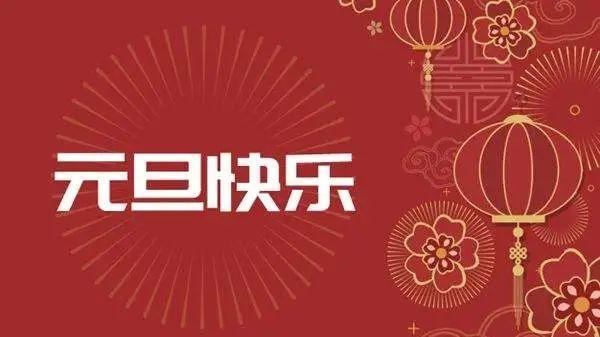In ancient times, there was no Gregorian calendar, how did people spend New Year's Day, and why was New Year's Day not inherited? Learn in one breath
Now that it has officially entered the New Year's Day holiday, many friends are actually very curious about a question while playing, that is, how did the New Year's Day festival live in ancient times? Even many people think that New Year's Day is a "foreign festival", which was introduced from abroad, and there is no New Year's Day in China, so in the end does China have a New Year's Day? In ancient times, when there was no Gregorian calendar, what would people do on New Year's Day? Let's take a look at it today.

What is New Year's Day?
Until now we all know that New Year's Day is the day of January 1 of the Gregorian calendar, which belongs to a global festival, and on this day there will be a holiday, such as China's New Year's Day, which is generally a holiday of 3 days, equivalent to the New Year of China's lunar festival, and many countries in the world will live this festival.
We all know that if we want to say the New Year, in our country generally will not be on January 1, we will usually choose the first day of the New Year, that is, the first day of the first month of the lunar calendar. From the point of view of the production of New Year's Day, in fact, the time is not long, the initial time was after the Xinhai Revolution, in order to facilitate statistics, January 1 of the 1 Gregorian calendar as "New Year", but this time did not set January 1 as "New Year's Day", the time set as New Year's Day is 1949, 1949 not only set January 1 as New Year's Day, but also called New Year's Day "Solar Calendar Year", so that we can easily compare with China's lunar year.
Is New Year's Day a "foreign festival"?
This is also the most curious question of many friends, from the above introduction we seem to be able to find that New Year's Day is really a bit of a "foreign festival" feeling, from the perspective of chronology, the use of the Gregorian calendar, and China's ancient, are the use of the lunar calendar, then can it be said that "New Year's Day" belongs to the festival introduced abroad? This is not the case.
China is an ancient country, and is a multi-ethnic country, thousands of years of culture, these things have long been formed, from the ancient Chinese books, we can still see more or less about the introduction of New Year's Day, since this is the case, New Year's Day can not be regarded as a foreign festival.
China's "Twenty-Four Histories" and "Book of Jin" once had "Emperor Zhao took the Mengxia Zhengyue as the yuan, in fact, the Spring of the New Year's Day of zhengshuo", from this time point of view, at least during the Eastern Han Dynasty in China, there was already a New Year's Day. In ancient China, Yuan also meant "beginning" and "beginning", and Dan meant "festival", which shows that china also had New Year's Day in ancient times.
It can be seen that China not only had the festival of New Year's Day in ancient times, so it is not a "foreign festival", but the chronology method used is different.
Why is "New Year's Day" not inherited in China?
Since there was a saying of New Year's Day in ancient China, why has it not been inherited? This is mainly related to the historical development of our country.
As mentioned above, China is a country with a long cultural history, and the historical development is also very rich, from the primitive period to the development of slave society, feudal society, which has undergone countless changes, such as before the Qin Dynasty, not only many wars, but also very scattered, until Qin Shi Huang swept through the six kingdoms before slowly entering the unification, but there are still many wars, and the purpose of war, is nothing more than to eliminate a regime and then establish a regime, such a new and elimination, these customs and temperaments, will also change.
In addition to the objective reasons for historical development, the other is that China is a multi-ethnic country, different nationalities, different customs, even today, the same festival time is still different, such as the Lantern Festival in our local area, the Miao over thirteen, the Yi over fourteen, the Han over the fifteenth.
The long-term development of ancient China has made the culture also become colorful, for example, the chronology may also be slightly different in each dynasty, and there are also differences between different ethnic groups, which leads to the fact that although it is the same festival, the time and way of commemoration are different. However, relatively speaking, the New Year is relatively unified, generally the first day of the first lunar month of the lunar calendar, so this is inherited. What do you think about that? Feel free to leave a comment below.